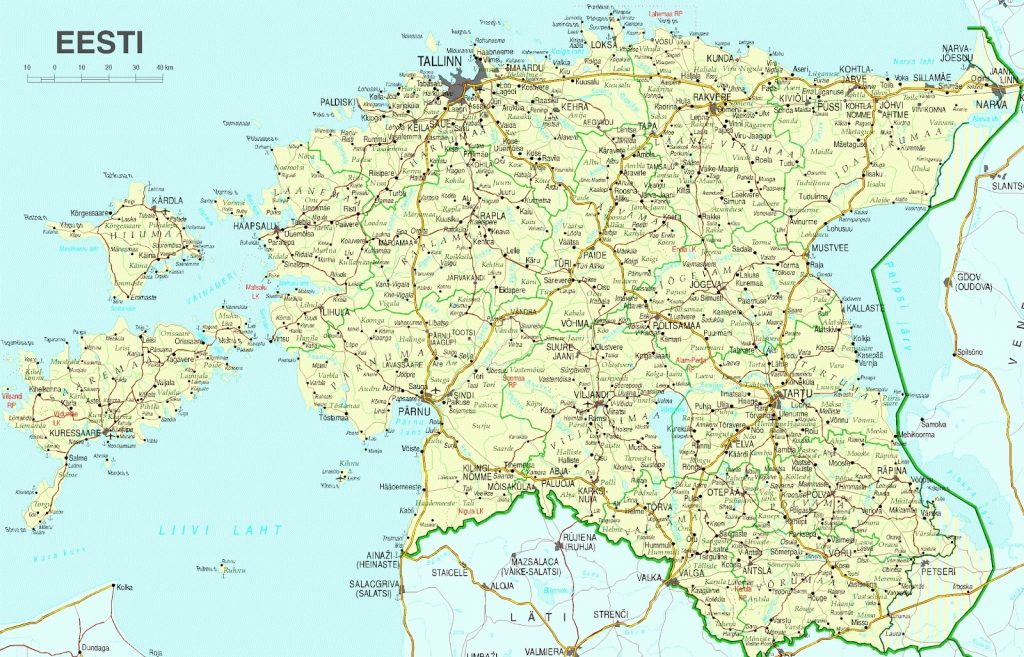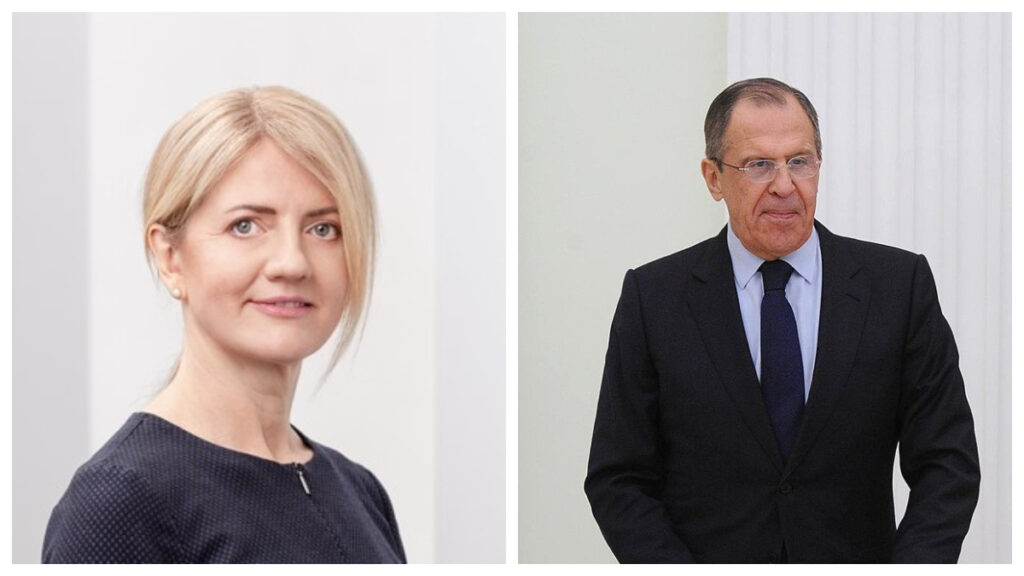On 9 April, the Estonian foreign minister Eva-Maria Liimets spoke on the phone with her Russian counterpart, Sergei Lavrov; the ministers discussed bilateral relations and the international situation.
“Estonia and Russia are neighbours and neighbours need to talk. Despite the fact that we have disagreements and our views on many issues differ,” Liimets said in a statement. “In our phone call, I raised the ratification of the border treaty signed by our countries in 2014 as an important bilateral topic, with the current Estonian government having announced its readiness to move forward on this issue. A border treaty that has entered into force would provide crucial security for Estonia and our allies. This concerns both our security as well as the fight against organised crime, drugs and smuggling, and human trafficking. We agreed we must continue consultations.”
According to a statement by the Russian foreign ministry, the Russian position is that a prerequisite of its ratification of the border treaty is “the fulfilment by Tallinn of the agreements reached during the signing of the border agreements in 2014”. The Russian side expects Estonia to “unequivocally refuse” of any territorial claims against Russia.
“Russia would like to see the readiness of its neighbours to form a normal non-confrontation atmosphere of bilateral relations,” the Russian foreign ministry added.
Ratification stalled for political reasons
Estonia and Russia signed a border treaty in 2005. However, during the ratification process in Estonia, the parliament added a preamble to the Act of Ratification (not to the actual border treaty, just to its internal ratification document) that referred to the 1920 Tartu Peace Treaty and the borders agreed within it – which slightly differ from the current de facto border between the two countries and thus from what was agreed in the 2005 border treaty.

Russia took this as a potential territorial dispute and refused to ratify the treaty, effectively terminating the agreement.
In 2014, the Estonian and Russian foreign ministers signed a new border agreement, also agreeing on the sea border across the Bay of Narva and the Gulf of Finland. The new treaty went to the respective parliaments for ratification, but no progress has been made so far. In 2017, Lavrov said that Russia will consider ratifying the treaty when the bilateral relations between Estonia and Russia constructively improve.
According to the Russian foreign ministry, during the 9 April phone call, Liimets’s “attention was drawn to the need to take concrete steps to solve problematic issues in Estonia related to the conservation of mass statelessness, the discriminatory position of the Russian-speaking population, plans to squeeze the Russian language out of the information and educational space, politically motivated persecution of Russian-speaking media and activists of the compatriot movement, as well as unacceptable attempts to falsify history”.
Cross-border cooperation a success story
According to the Estonian foreign ministry, the two colleagues also discussed other matters.
“Several agreements that are important for Estonia and Russia are still under preparation and we should make progress with them as well. These include agreements on road transport, amending our cooperation on pension insurance, the agreement on the avoidance of double taxation and the prevention of fiscal evasion with respect to taxes on income and capital, and railway agreements also need to be changed,” the Estonian foreign minister said in a statement.

The Estonian foreign ministry also asserted that both ministers said the cross-border cooperation of Estonia and Russia has been a success story. “Here, planning and providing input for the new programming period (2021-2027) of cross-border cooperation offers a good opportunity. With this in mind, I proposed boosting environmental and climate cooperation,” Liimets said.
When it comes to international relations, Estonia considers upholding international law crucial, including respect for territorial integrity and human rights. “I voiced serious concern to my Russian colleague over the military escalation in and around Ukraine. It is important for Russia to meet its international commitments and make efforts to resolve the situation peacefully,” the Estonian foreign minister noted.
The most recent meeting of the foreign ministers of Estonia and Russia was held in 2015.
Cover: Eva-Maria Liimets (left) and Sergei Lavrov.

